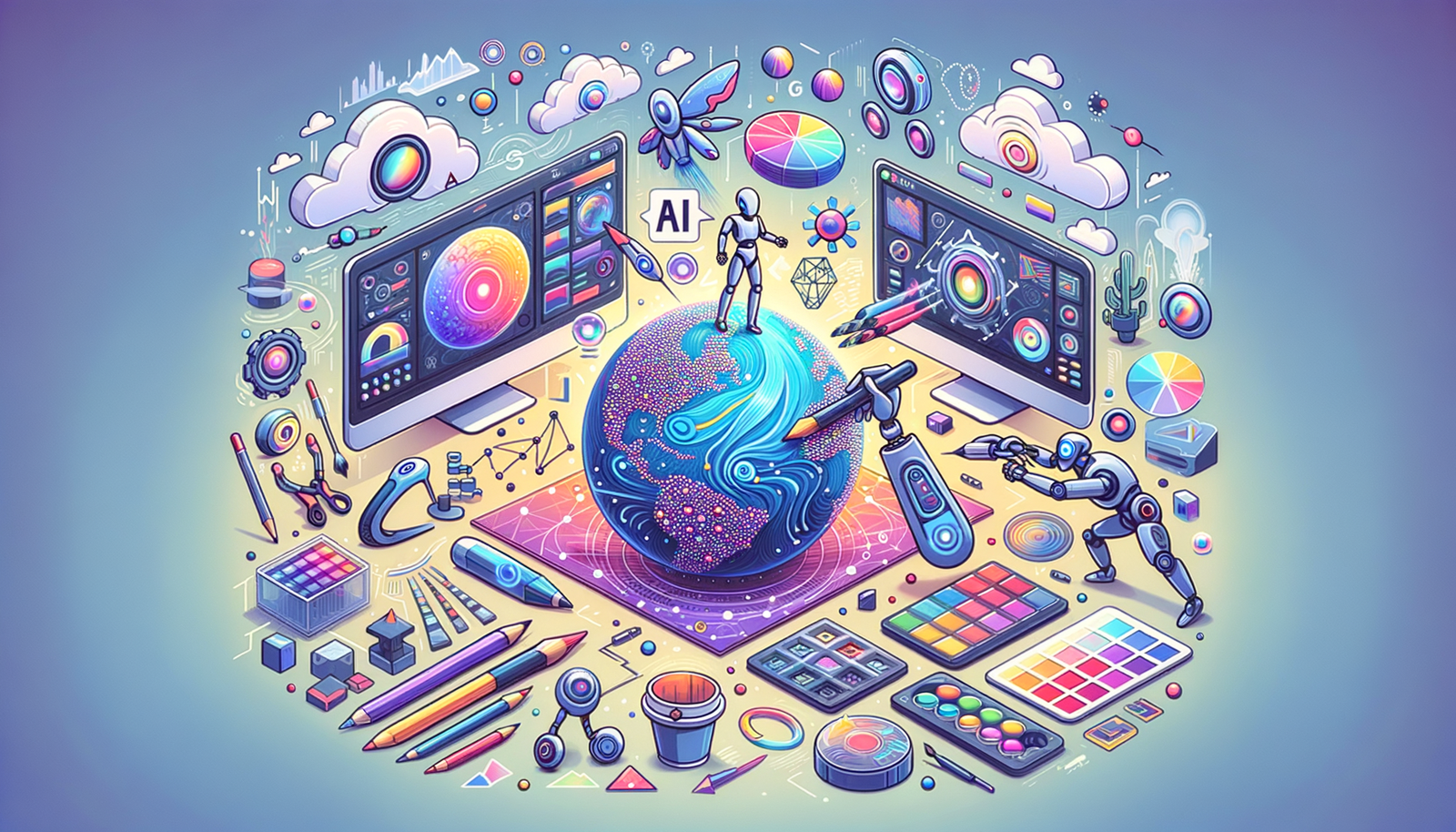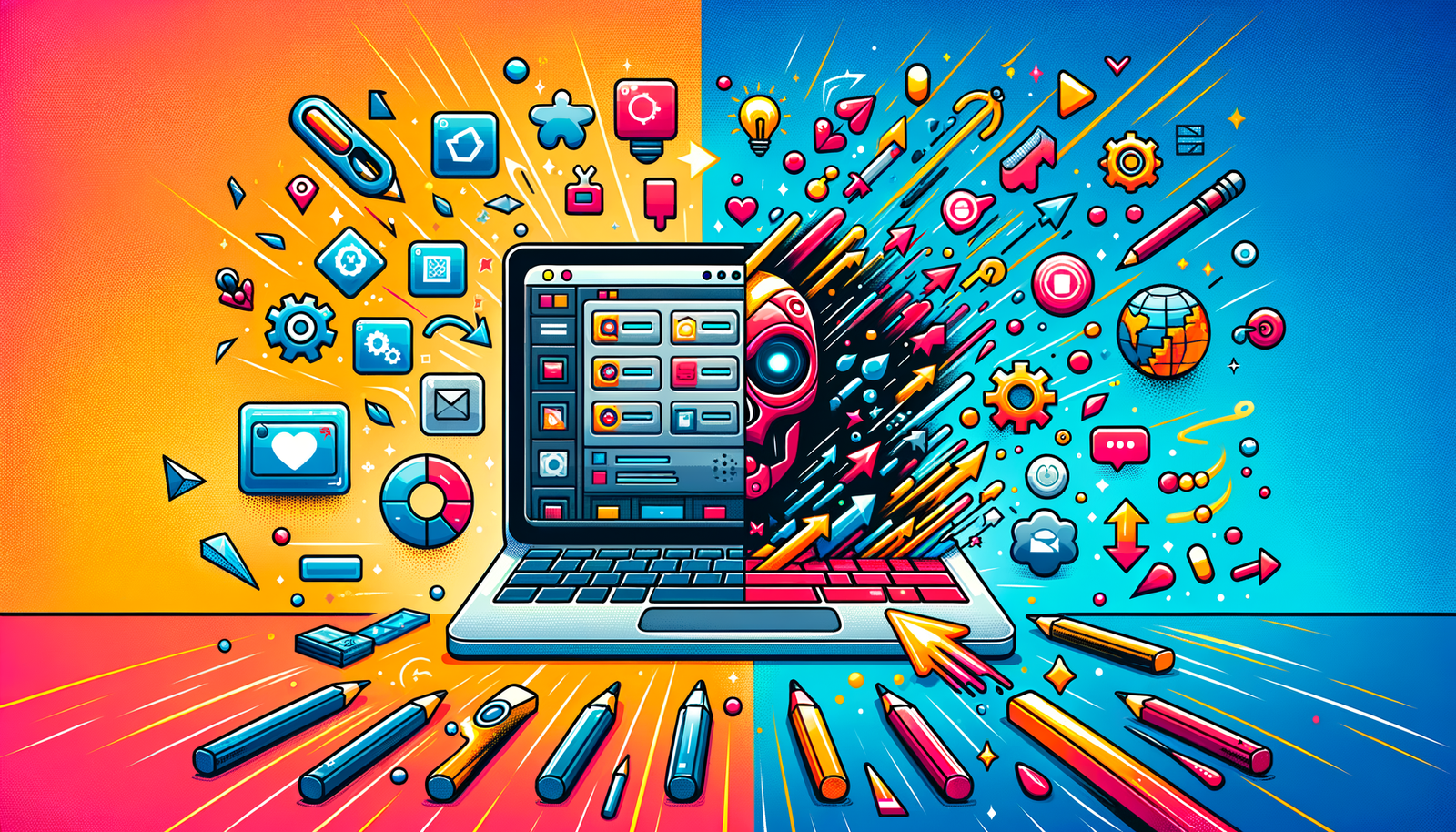Your Cart is Empty
Customer Testimonials
-
"Great customer service. The folks at Novedge were super helpful in navigating a somewhat complicated order including software upgrades and serial numbers in various stages of inactivity. They were friendly and helpful throughout the process.."
Ruben Ruckmark
"Quick & very helpful. We have been using Novedge for years and are very happy with their quick service when we need to make a purchase and excellent support resolving any issues."
Will Woodson
"Scott is the best. He reminds me about subscriptions dates, guides me in the correct direction for updates. He always responds promptly to me. He is literally the reason I continue to work with Novedge and will do so in the future."
Edward Mchugh
"Calvin Lok is “the man”. After my purchase of Sketchup 2021, he called me and provided step-by-step instructions to ease me through difficulties I was having with the setup of my new software."
Mike Borzage
Exploring the Future of Design: How AI Integration Transforms Design Software and Processes
June 19, 2024 3 min read


Introduction: The Dawn of AI in Design
The integration of Artificial Intelligence (AI) into design software represents a pivotal shift in the landscape of design, offering unprecedented opportunities for creativity, efficiency, and innovation. AI's current role in design software spans from automating mundane tasks to facilitating complex decision-making processes, marking a significant evolution from traditional design methodologies. Tracing back the history of design software reveals a trajectory of incremental advancements that have set the stage for the integration of AI, promising a future where design limitations are continually redefined.
How AI is Transforming Design Processes
- Automated design tasks: AI algorithms are now capable of automating repetitive tasks within the design process, thereby freeing up designers to focus on more creative aspects of their work. This shift not only enhances productivity but also fosters innovation.
- Predictive design: By analyzing vast datasets, AI can predict user preferences and the potential success of design elements, leading to designs that are more personalized and likely to resonate with the intended audience.
- Enhanced collaboration: AI-driven tools facilitate better collaboration among designers, engineers, and other stakeholders by providing real-time updates, suggestions, and streamlined communication channels, ensuring that all parties are aligned throughout the design process.
- Error reduction and precision: The precision of AI algorithms plays a critical role in minimizing errors and enhancing the accuracy of design outputs, ensuring that the final products meet the desired specifications and quality standards.
Spotlight on AI-Driven Design Software Innovations
The advent of AI has led to several groundbreaking innovations in design software, fundamentally altering how designers approach their craft. Among these innovations, generative design stands out as a transformative concept that leverages AI to explore a wider array of design options than ever before, optimizing for predefined constraints and objectives.
Another significant advancement is the integration of AI in 3D modeling and rendering, which has streamlined these processes, making them more efficient and yielding results that are breathtakingly realistic. AI's role in smart materials selection is equally noteworthy, providing designers with intelligent recommendations that optimize for sustainability, cost, and performance, thereby significantly impacting the final product's feasibility and market success.
Furthermore, AI is personalizing the design experience through customized user experiences, adapting software interfaces, and functionalities to match individual user preferences and behaviors. This adaptability not only enhances user engagement but also accelerates the design process.
Challenges and Ethical Considerations
Despite the promise of AI in design, several challenges and ethical considerations need to be addressed. Data privacy and security emerge as paramount concerns, given the sensitive nature of the data utilized by AI systems. Similarly, the potential for bias in AI algorithms poses a significant challenge, necessitating measures to ensure that AI-generated designs are free from discriminatory biases.
The impact of AI on the future of employment in design fields also warrants discussion, as the automation of design tasks raises questions about job displacement and the evolution of design roles. Additionally, the integration of AI into design processes introduces complex issues surrounding intellectual property rights, challenging traditional notions of creativity, originality, and ownership.
Conclusion: What's Next for AI in Design?
Looking forward, the integration of AI in design software is poised for further evolution, promising to unlock new dimensions of creativity, efficiency, and personalization. However, realizing this potential requires a balanced approach that not only harnesses the benefits of AI but also addresses the ethical and practical challenges it presents. Central to this endeavor is the role of human creativity and expertise, which remains indispensable in guiding AI applications and ensuring that the value they deliver is maximized. As we stand on the brink of this new era in design, the collaborative synergy between human designers and AI will undoubtedly shape the future of design in ways we are only beginning to imagine.
Also in Design News

Surveying Simplified: Top BricsCAD Tools and Techniques | Bricsys Webinar
April 24, 2025 1 min read
Read More
Transforming Design Software with Advanced Customization and Adaptive User Interfaces
April 24, 2025 6 min read
Read MoreSubscribe
Sign up to get the latest on sales, new releases and more …



